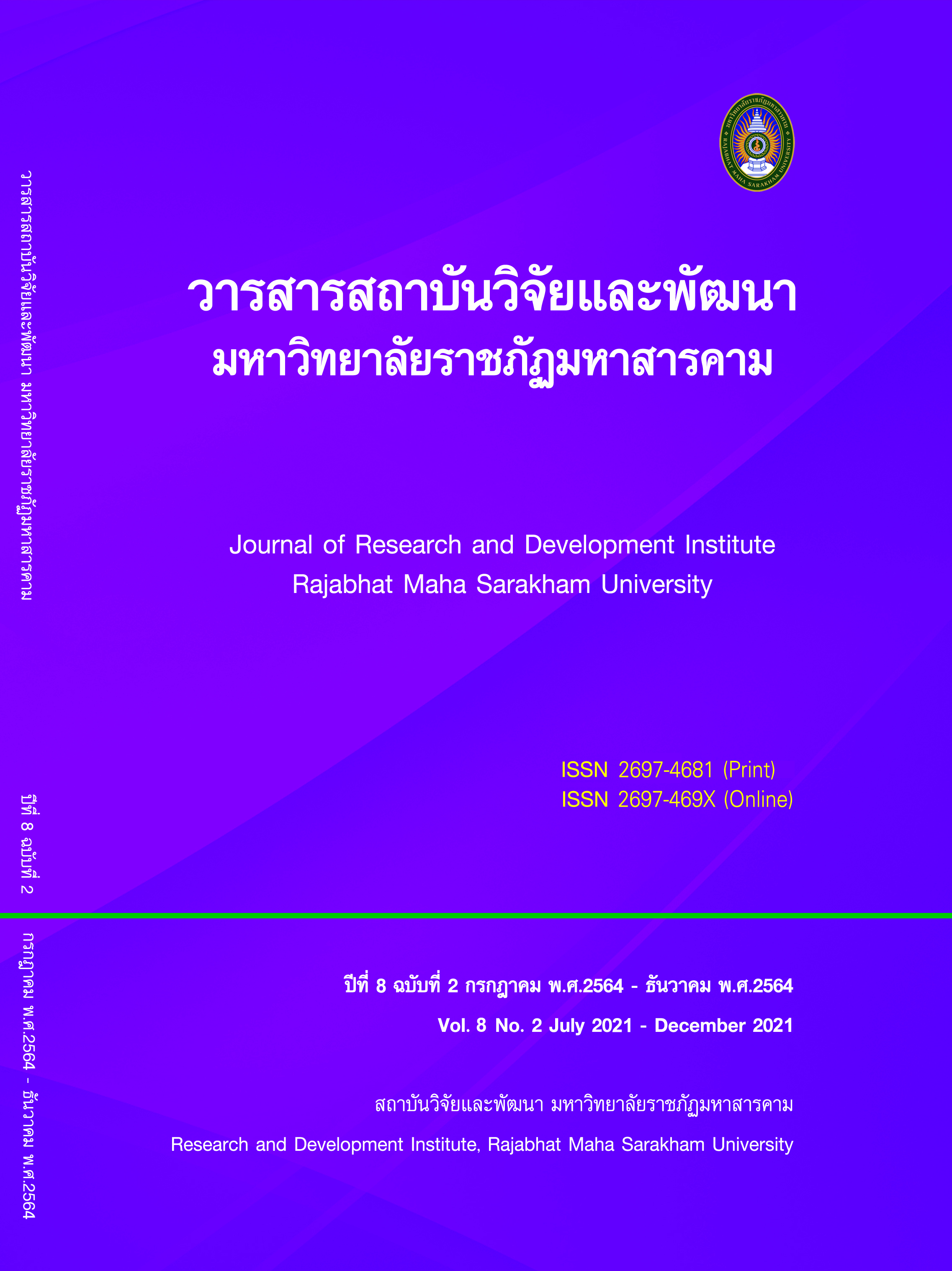Upgrading OTOP Community Products
Keywords:
Upgrading OTOP Community Products, OTOP products, Community enterprisesAbstract
The objectives of the research were to 1) study problems and needs of upgrading community products of community enterprises which produce OTOP products of Mahasarakham Province, 2) study the development of upgrading community products toward standards certified in each type of OTOP products, and 3) study the results of knowledge sharing of the development of upgrading OTOP community products of community enterprises. The research employed quality research methodology, having the scope of research as follows: (1) the research settings comprised 5 community enterprises in Mahasarakham Provinces; (2) The 13 key informants comprised (2.1) chairpersons of the community enterprises, (2.2) village learned persons, (2.3) group members, and (2.4) academicians involved in community enterprises. The research instruments consisted of (1) a structured and unstructured interview form, (2) a guideline for focus group questions and a focus group record, (3) a survey form for problems and needs of upgrading community products of community enterprises, and (4) an observation form for participation and non-participation. The research results were presented through a descriptive analysis.
The results were as follows:
1) The study of problems and needs of upgrading community products of community enterprises which produce OTOP products of Mahasarakham Province revealed that the community enterprises had the following problems and needs: (1) the community enterprises’ process of production toward the standard of each type of OTOP products, (2) building network markets, (3) administration and management of the group.
2) The results of the study of the development of upgrading community products
toward standards certified in each type of OTOP products revealed that the following aspects were developed: (1) transmission of the body of knowledge, the process of production and making new products to be certified according to the OTOP standard in clothing, items for use and food, (2) network market building, and (3) using technology and information.
3) The results of the study on knowledge sharing of the community enterprises showed that there were 3 methods of knowledge sharing: (1) transmission of the body of knowledge between the researchers, trainers and the community enterprise groups, (2) the focus group discussion with representatives of the community enterprise groups, and (3) dissemination of OTOP community products.
References
Bannakit, S. (2019). Interviewee. Ban Nong Itu, Si Suk Subdistrict, Kantharawichai District, Mahasarakham.
Chantavanich, S. (2010). Qualitative Research Methods. (18nded). Bangkok: Chulalongkorn University.
Intasoi, J. (2019). Interviewee. Ban Nong Hin Weaving Group, Khok Ko Subdistrict, Mueang District, Mahasarakham.
Phetprasert, N. (2002). Community Business: Possible Paths.Bangkok: The Thailand Research Fund.
Pongkhamhan, C. (2019). Interviewee. Ban Lao Phochai, Nong Krung Sawan Subdistrict, Kosum Phisai District Mahasarakham.
Rattanadirek, J. (2006). Guidelines for doing e-commerce business for an advantage in business. Master of Thesis: King Mongkut's University of Technology North Bangkok.
Rittidet, P and Dakaew, S. (2018). Summary report of academic service project results for fiscal year 2018. Maha Sarakham: Taksila printing.
Sukhothai Thammathirat Open University. (2001). Theory and Practice in Educational Administration, Units 5-8. (3nded). Bangkok: Sukhothai Thammathirat Open University.
Tinnabutr, P. (1988). Packaging design. Bangkok: Odeon Store.
Downloads
Published
How to Cite
Issue
Section
License
Copyright (c) 2021 Journal of Research and Development Institute Rajabhat Maha Sarakham University

This work is licensed under a Creative Commons Attribution-NonCommercial-NoDerivatives 4.0 International License.
Articles that are published are copyrighted by the authors of the articles







